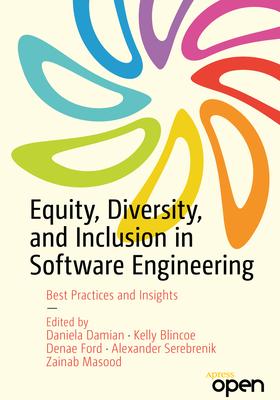Despite these many efforts, diversity remains low. Numbers from the software industry show that less than 25% of software engineers are women. Diversity is also low in regards to many other facets of diversity.
This book provides an overview of research into the different aspects of diversity and inclusion in software engineering, as well as the tools, methods, and practices proposed to foster diversity and to build inclusive software teams and development environments. It describes research challenges in studying diversity and inclusion in software.
Readers will be challenged to consider how they are contributing to a lack of inclusion and what they can do to improve inclusion in the software industry.
What You Will Learn
- Aspects of diversity (e.g., age, culture, gender, race) and relationship to software engineering activities and outcomes
- How to measure diversity
- Investigations of intersectionality in software engineering
- Research methods for the study of diversity and inclusion in software engineering
- Empirical studies of effective practices to foster diversity and inclusion in software engineering
- Interventions and programs that have been used to successfully support retention in software engineering
- Software engineering education for diverse and inclusive software engineering, and proven teaching methods/environments that support diverse and inclusive software engineering
Who This Book Is For
For Researchers, the book presents a state-of-the-art collection of existing studies into many aspects of diversity, methods, and tools proposed and tried out in practice, challenges in research, and contributing to a research agenda on this topic for future studies.
For Industry practitioners, the book describes efforts to investigate diversity in software teams, whether in corporate or open source environments. It also describes empirical evidence about effectiveness of certain methods and approaches to foster diversity and inclusion in software development.
For Educators, the book describes practices and effective changes in Computer Science/Software Engineering curricula that were found as effective in engaging learners from minoritized groups, creating inclusive software teams that are diverse, and which relate to educational material useful for training for diversity, equity, and inclusion.